Pistols and war toys for children, for or against
Pistols, soldiers, tanks, planes, cars and toys of this style have been cyclical gifts in children over time, they are toys that have remained stable over time and have continued to be manufactured because there is demand. At first glance they do not seem to be problematic, however, this topic has aroused controversy in recent years , so that is considering whether this type of toys would not encourage violence in children. Currently there are two opposing positions.
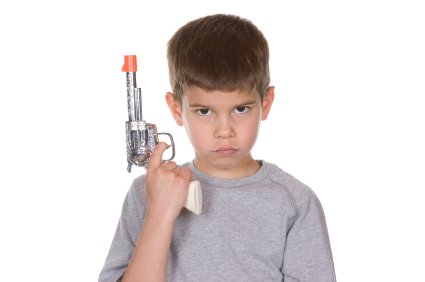
IN FAVOR OF WAR TOYS
The defenders of this position say that toys are not those that produce violence on their own, but that it is the child who externalizes it , that is, if the child is living in a deteriorated family environment or is frequently exposed to violence Logically the child will end up being aggressive without having to mediate guns. From this position, it is defended that what must be done is to educate the child so that he learns to differentiate between good and evil.
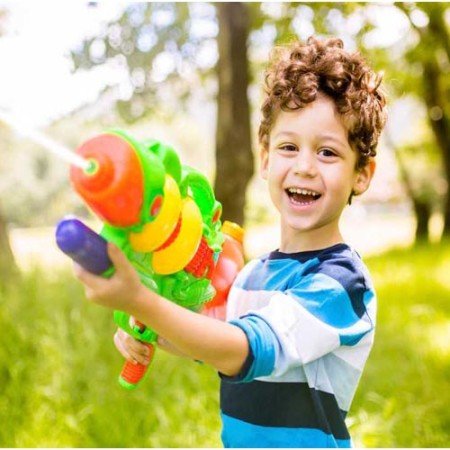
On the other hand, those who defend this point of view say that television itself is more reprehensible than the toys that children ask for, it is the message that adults convey what they produce that makes children behave violently , that is why it is foolish to think that toys can generate violence.
In environments that are conflicting, these toys can contribute to violence but in an affectionate environment it does not have to be that way.
Basically what this point of view says is that violent games do not produce violent children , the existence of these is because they were violent already, before playing with guns.
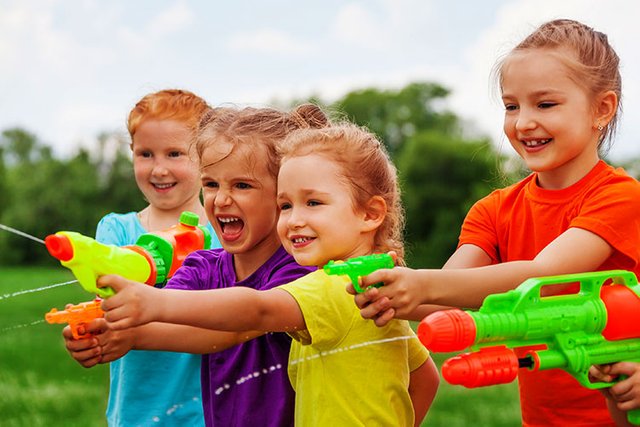
There are different positions on what is taught to children with these toys
AGAINST WAR TOYS
The first thing made clear by those who defend this position is that at no time is it believed that pistols, planes, tanks or other toys related to war or battles create violence for themselves. It is a reductionism. However, it is believed that they contribute to maintain it if there is one or even favor its appearance in the future if the right environment is given, since these toys are difficult to decontextualize. But how can they do it?
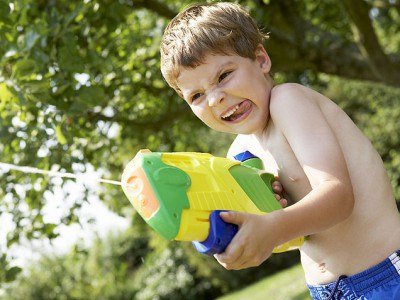
If we allow children to play with war toys, we are transmitting to them in a certain way that violence does not cause us a rejection and there is nothing wrong with it . As much as you explain to a child that what he has in his hands is just a toy and that he should never hurt others in real life, in reality, they will only understand you half-heartedly, they believe that they must hurt others but they are also learning that problems can be solved alternately through violence and that ... surprise! This way is faster and even fun. It's like giving them our consent, making them see that violence does not seem wrong.
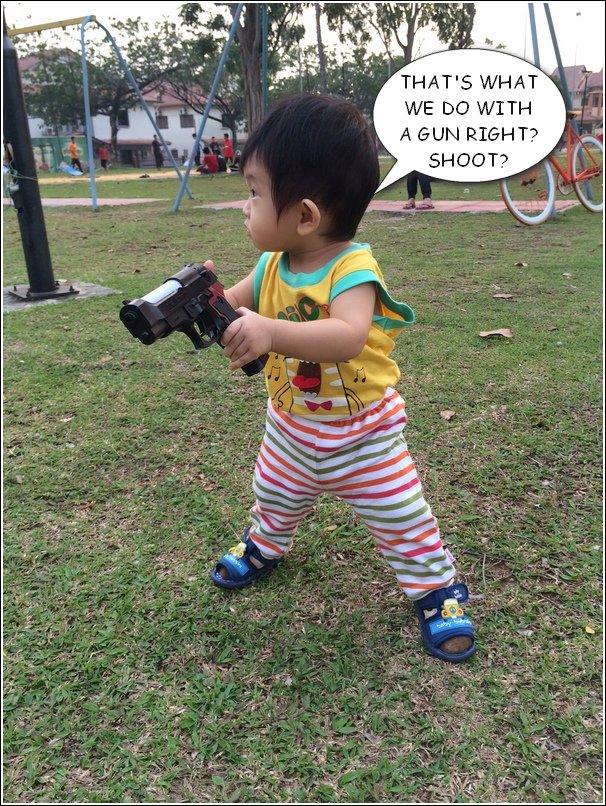
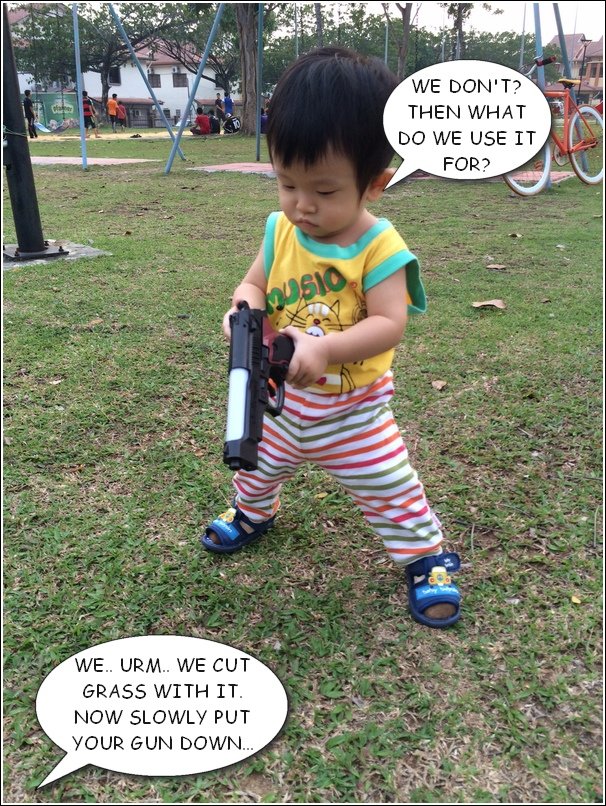
We can not deny that the programming that appears on television today is very violent, and yes, surely what children can see on the three o'clock television news is infinitely more violent than a toy shot gun, but is that a good excuse to give them that toy? That is, since they are also violent tools, do we have the right to put others at risk only because we they are less so? Is not it better to think that the less exposure you have to violence, the better? The solution might be not to give them war toys or let them watch certain television programs.
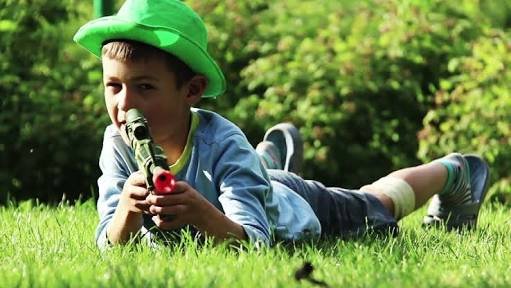
Children who regularly play violent games (like they see violent programs or movies) become progressively desensitized to it , does not mean that they will become abusers, much less, but that over time, seeing violence for them will not be so striking as for the rest of the people and it is not highly recommended that a society frivolize these acts ... In addition, the child's age is also key when it comes to allowing them to play with these games. It is more dangerous between 4-7 years because it is the period of time in which children internalize social roles.
WHAT IS THE BEST?
Here I leave the open debate for you to decide openly, I do not want to impose anything, however, then we dismantle some of the arguments and beliefs of those who are in favor of these toys.
Each family must decide what they consider best for their son or daughter
"Even if they are forbidden to play with them, you can not control their compliance." In this sense, even if the child is forbidden to play with pistols, he can always make his form with a hand, a banana, use a broom as a sword, etc.
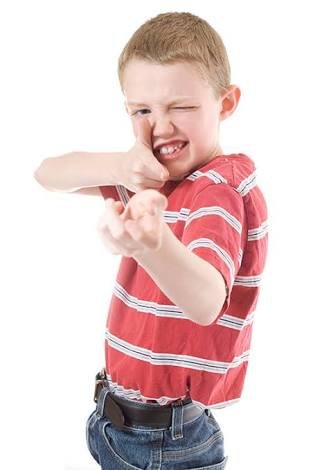
Well, it is true, you can never prohibit them from playing this type of toys because it is impossible, however if we can decide that at least we have not contributed to it, and most importantly, we made it clear to the child our position: we do not approve toys that have to do with war.
Another example, we do not want our son to smoke and we can never control that he really does not do it as soon as he completes a few more years, but are we going to buy his own tobacco for that?
- "Though these toys can channel aggression." Completely false. Violence games do not eliminate violence, they only maintain it and increase it over time. Does the child de-stress imagining that he hits shots? Well, you are teaching him that a correct way to eliminate his anxiety is by being violent with others. Can you not teach him to be liberated by other methods? The sport , drawing, music, writing ... these methods have always been cathartic for people from the beginning of time, are a way to get rid of bad emotions doing something good or at least not violent."Though these toys can channel aggression." Completely false. Violence games do not eliminate violence, they only maintain it and increase it over time. Does the child de-stress imagining that he hits shots? Well, you are teaching him that a correct way to eliminate his anxiety is by being violent with others. Can you not teach him to be liberated by other methods? The sport , drawing, music, writing ... these methods have always been cathartic for people from the beginning of time, are a way to get rid of bad emotions doing something good or at least not violent.

THERE IS NO ANSWER, JUST WATCH YOUR SON
The final decision is yours as parents and the best way to check that you do the right thing is maybe by seeing how he behaves and the attitude that your child has. Is he over 7 years old? Is he a calm child and "mature" for his age? Is it easily influenced? Can he differentiate between what is right and what is wrong? Depending on the answers to these questions you can know what will be best for him. Finally, if you finally decide to buy that cool lightsaber or those pistols of your favorite movie talk to him first and make it clear what you think about violence, the consequences it has and what alternatives.